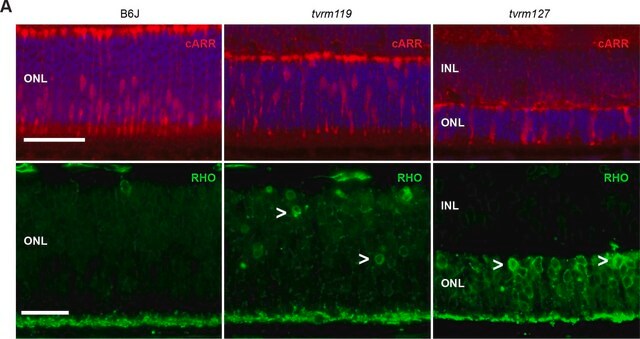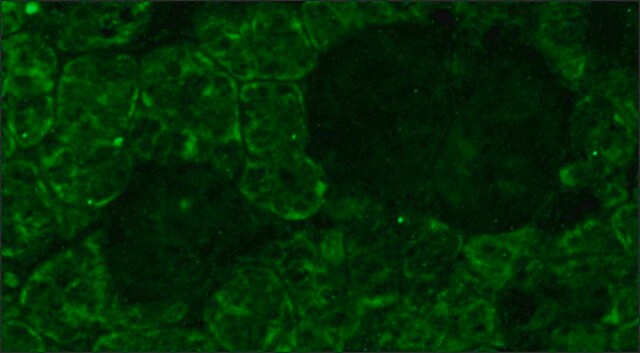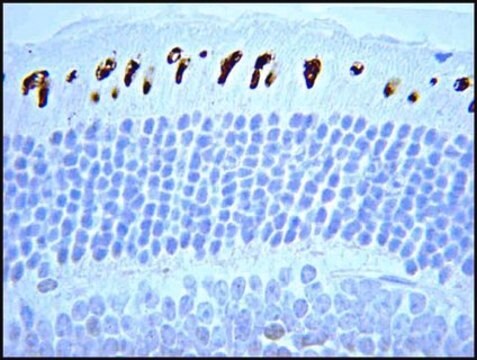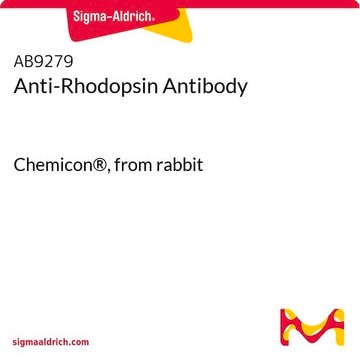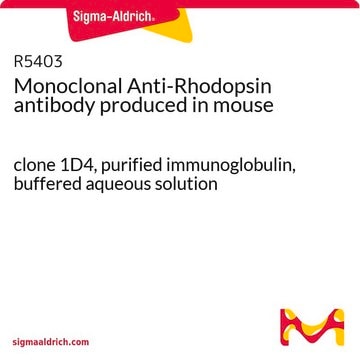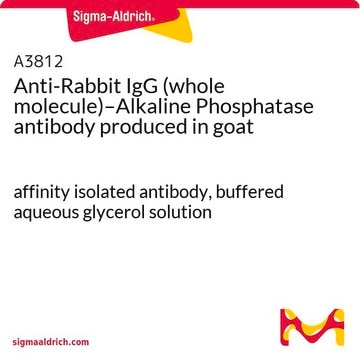MAB5316
Anti-Rhodopsin Antibody, clone RET-P1
clone RET-P1, Chemicon®, from mouse
Synonym(s):
Opsin 2
About This Item
Recommended Products
biological source
mouse
Quality Level
antibody form
purified immunoglobulin
antibody product type
primary antibodies
clone
RET-P1, monoclonal
species reactivity
human, mouse, rat
manufacturer/tradename
Chemicon®
technique(s)
immunocytochemistry: suitable
western blot: suitable
isotype
IgG1
NCBI accession no.
UniProt accession no.
shipped in
wet ice
target post-translational modification
unmodified
Gene Information
human ... RHO(6010)
Specificity
CELLULAR LOCALIZATION:
Cytoplasmic
Immunogen
Application
Immunocytochemistry
Immunohistochemistry (frozen and formalin/paraffin): 1-2 μg/mL. Staining of formalin fixed tissue sections requires boiling the tissue sections in 10mM citrate buffer, pH 6.0 for 10-20 minutes followed by cooling at room temperature for 20 minutes.
Optimal working dilutions must be determined by end user.
Neuroscience
Sensory & PNS
Physical form
Storage and Stability
Analysis Note
POSITIVE CONTROL:
IMR-5 cells, brain or retina.
Other Notes
Legal Information
Disclaimer
Not finding the right product?
Try our Product Selector Tool.
recommended
Storage Class Code
12 - Non Combustible Liquids
WGK
WGK 2
Flash Point(F)
Not applicable
Flash Point(C)
Not applicable
Certificates of Analysis (COA)
Search for Certificates of Analysis (COA) by entering the products Lot/Batch Number. Lot and Batch Numbers can be found on a product’s label following the words ‘Lot’ or ‘Batch’.
Already Own This Product?
Find documentation for the products that you have recently purchased in the Document Library.
Our team of scientists has experience in all areas of research including Life Science, Material Science, Chemical Synthesis, Chromatography, Analytical and many others.
Contact Technical Service